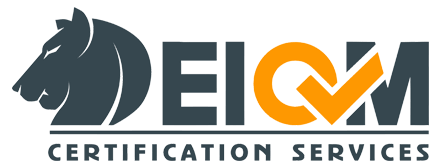ISO/TS 16949 is an internationally recognized standard that outlines the requirements for a quality management system (QMS) specifically designed for the automotive industry. This article will delve into the key aspects of ISO TS16949, its significance in the automotive sector, and how organizations can benefit from its implementation.
Understanding ISO TS16949
ISO TS16949 is an industry-specific standard developed by the International Organization for Standardization (ISO). It was created to harmonize the different quality management system standards used in the automotive sector worldwide. The standard outlines the requirements for establishing, implementing, and improving a QMS within an organization.
The Importance of ISO/TS 16949 for Automotive Industry
The automotive industry operates in a highly competitive and regulated environment. ISO TS16949 plays a crucial role in ensuring that automotive companies meet customer expectations, enhance product quality, and drive continuous improvement. Compliance with this standard demonstrates a commitment to excellence and customer satisfaction.
Key Requirements of ISO TS16949
Management Responsibility
Under ISO/TS 16949, top management is responsible for establishing a quality policy, setting objectives, and ensuring the availability of necessary resources. They must also lead by example, promoting a quality-focused culture throughout the organization.
Resource Management
ISO TS16949 emphasizes the importance of effective resource management, including competent personnel, infrastructure, and work environment. Adequate training and development programs should be implemented to enhance employees’ skills and capabilities.
Product Realization
This section of the standard focuses on the processes involved in product realization, from initial design to final delivery. It emphasizes risk management, change control, and validation of product and process designs to ensure consistent quality and customer satisfaction.
Measurement, Analysis, and Improvement
ISO TS16949 requires organizations to establish and maintain a robust system for measuring, analyzing, and improving their performance. This includes monitoring key performance indicators, conducting internal audits, and implementing corrective and preventive actions to address non-conformances and drive continuous improvement.
Benefits of ISO/TS 16949 Certification
Enhanced Customer Satisfaction
ISO TS16949 helps organizations meet customer requirements consistently, resulting in increased customer satisfaction. By implementing effective quality management practices, companies can deliver products that meet or exceed customer expectations, leading to long-term customer loyalty.
Improved Process Efficiency
ISO/TS 16949 encourages organizations to streamline their processes and eliminate waste. By implementing lean manufacturing principles and effective quality control measures, companies can improve operational efficiency, reduce costs, and enhance overall productivity.
Supply Chain Integration
ISO TS16949 promotes collaboration and integration within the automotive supply chain. Certified organizations have a standardized framework for managing suppliers, ensuring that only high-quality components and materials are used in the manufacturing process.
Continuous Improvement Culture
ISO TS16949 fosters a culture of continuous improvement within organizations. By implementing systematic measurement and analysis procedures, companies can identify areas for improvement, implement corrective actions, and drive innovation throughout the entire value chain.
Steps to Implement ISO/TS 16949
Gap Analysis and Planning
The first step towards ISO TS16949 implementation is conducting a thorough gap analysis. This involves comparing existing processes and procedures against the standard’s requirements and identifying areas that need improvement. A detailed implementation plan should be developed, outlining the necessary steps, resources, and timelines.
Documentation and Training
Organizations need to develop a comprehensive quality manual and associated documentation that aligns with ISO TS16949 requirements. This includes process flowcharts, work instructions, and forms. Adequate training should be provided to all employees to ensure their understanding and adherence to the standard.
Implementation and Auditing
During this phase, organizations implement the planned changes and monitor their effectiveness. Internal audits should be conducted regularly to assess compliance and identify any non-conformities. Corrective and preventive actions should be implemented to address identified issues.
Certification and Beyond
Once the organization has achieved compliance with ISO TS16949, an external certification body should be engaged for an independent audit. Successful certification demonstrates the organization’s commitment to quality and provides a competitive edge. Continuous monitoring and improvement efforts should be maintained to sustain certification.
Common Challenges in ISO/TS 16949 Implementation
Resistance to Change
Implementing ISO TS16949 requires a cultural shift within the organization. Resistance to change from employees at all levels can pose a significant challenge. Effective communication, training, and involvement of employees in the implementation process can help overcome this resistance.
Resource Allocation
Implementing ISO TS16949 demands adequate resources, including personnel, time, and financial investments. Organizations need to allocate resources effectively to ensure successful implementation and ongoing compliance.
Maintaining Compliance
ISO/TS 16949 compliance is an ongoing effort. Organizations need to continuously monitor their processes, measure performance, and address any non-conformities. Maintaining compliance requires a commitment to a culture of quality and continuous improvement.
ISO TS16949 and the Future of Automotive Industry
As the automotive industry continues to evolve, ISO TS16949 will play a crucial role in ensuring the highest standards of quality, safety, and customer satisfaction. The standard will adapt to emerging technologies and changing market dynamics, providing a framework for organizations to stay competitive and drive innovation.
Conclusion
ISO TS16949 is a vital standard for automotive companies seeking to establish a robust quality management system. By implementing ISO/TS 16949, organizations can enhance customer satisfaction, improve process efficiency, and integrate their supply chains effectively. Although implementation may pose challenges, the long-term benefits and competitive advantage make ISO TS16949 certification a worthwhile endeavor.
Contact EIQM
To contact us, please fill out the form below. We will contact you as soon as possible. You can also apply through this form if you would like to receive system certification or representation of EIQM Certification Body.

